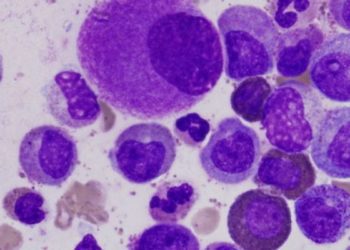Patient satisfaction a poor surgical quality indicator
Image: PD
1. Patient satisfaction scores were not associated antibiotic prophylaxis, pre-surgical hair removal, and DVT prophylaxis.
2. Although patient satisfaction was not associated with the hospital’s overall safety culture score, individual parts of the safety culture score such as teamwork climate, safety climate and stress recognition were associated.
Evidence Rating Level: 2 (Good)
Study Rundown: Starting in 2010, patient satisfaction began to be used as a measure of surgical quality to establish hospital reimbursement. This study found little correlation between the other metrics of quality tracked by the Surgical Care Improvement Program (SCIP) and employee safety culture scores. Although this study analyzed a large number of hospitals in a variety of states, there still exists a potential selection bias as the hospitals included in this study were all urban and mostly academic centers that elected to participate in the employee Safety Attitudes Questionnaire (SAQ). Additionally, the patient satisfaction survey was not specifically aimed to evaluate surgical care. Although process measures and safety culture scores have correlation to patient outcomes, it is possible that patient satisfaction captures a discrete facet of quality care. A more definitive study would measure the correlation between patient satisfaction scores and surgical outcomes.
Click to read the study in JAMA Surgery
Relevant Reading: Using the AHRQ Hospital Survey on Patient Safety Culture as an Intervention Tool for Regional Clinical Improvement Collaboratives
In-Depth [retrospective review]: This study analyzed data from thirty-one hospitals across ten states to compare results from a patient satisfaction survey to reported standard measures of surgical quality such as DVT prophylaxis and hospital safety culture scores. Patient satisfaction was evaluated by the Hospital Consumer Assessment of Healthcare Providers and Systems Survey (HCAHPS) with questions that focused on areas such as responsiveness of hospital staff and pain management. Pearson correlation analysis did not demonstrate a correlation between patient satisfaction and hospital adherence to process measures. Although the overall safety culture score was also not associated with patient satisfaction, patient satisfaction did correlate with the individual domains of safety culture. Teamwork climate and safety climate had the strongest positive correlation (R =0.439, p=0.01 and R=0.395, p=0.03). However, employee job satisfaction, working conditions and perceptions of management were also positively correlated. Stress recognition was inversely related.
By Asya Ofshteyn and Allen Ho
More from this author: Liver transplant prolongs life in metastatic colorectal cancer, Pediatric post-operative intussusception more common in open surgery, CTA as an alternative to angiography for blunt cerebrovascular trauma detection, Low infection risk with neurologic endovascular procedures, Post-operative PTSD intervention improves physical outcomes in trauma patients
© 2013 2minutemedicine.com. All rights reserved. No works may be reproduced without written consent from 2minutemedicine.com. Disclaimer: We present factual information directly from peer reviewed medical journals. No post should be construed as medical advice and is not intended as such by the authors or by 2minutemedicine.com. PLEASE SEE A HEALTHCARE PROVIDER IN YOUR AREA IF YOU SEEK MEDICAL ADVICE OF ANY SORT. Content is produced in accordance with fair use copyrights solely and strictly for the purpose of teaching, news and criticism. No benefit, monetary or otherwise, is realized by any participants or the owner of this domain.



![2 Minute Medicine: Pharma Roundup: Price Hikes, Breakthrough Approvals, Legal Showdowns, Biotech Expansion, and Europe’s Pricing Debate [May 12nd, 2025]](https://www.2minutemedicine.com/wp-content/uploads/2025/05/ChatGPT-Image-May-12-2025-at-10_22_23-AM-350x250.png)





